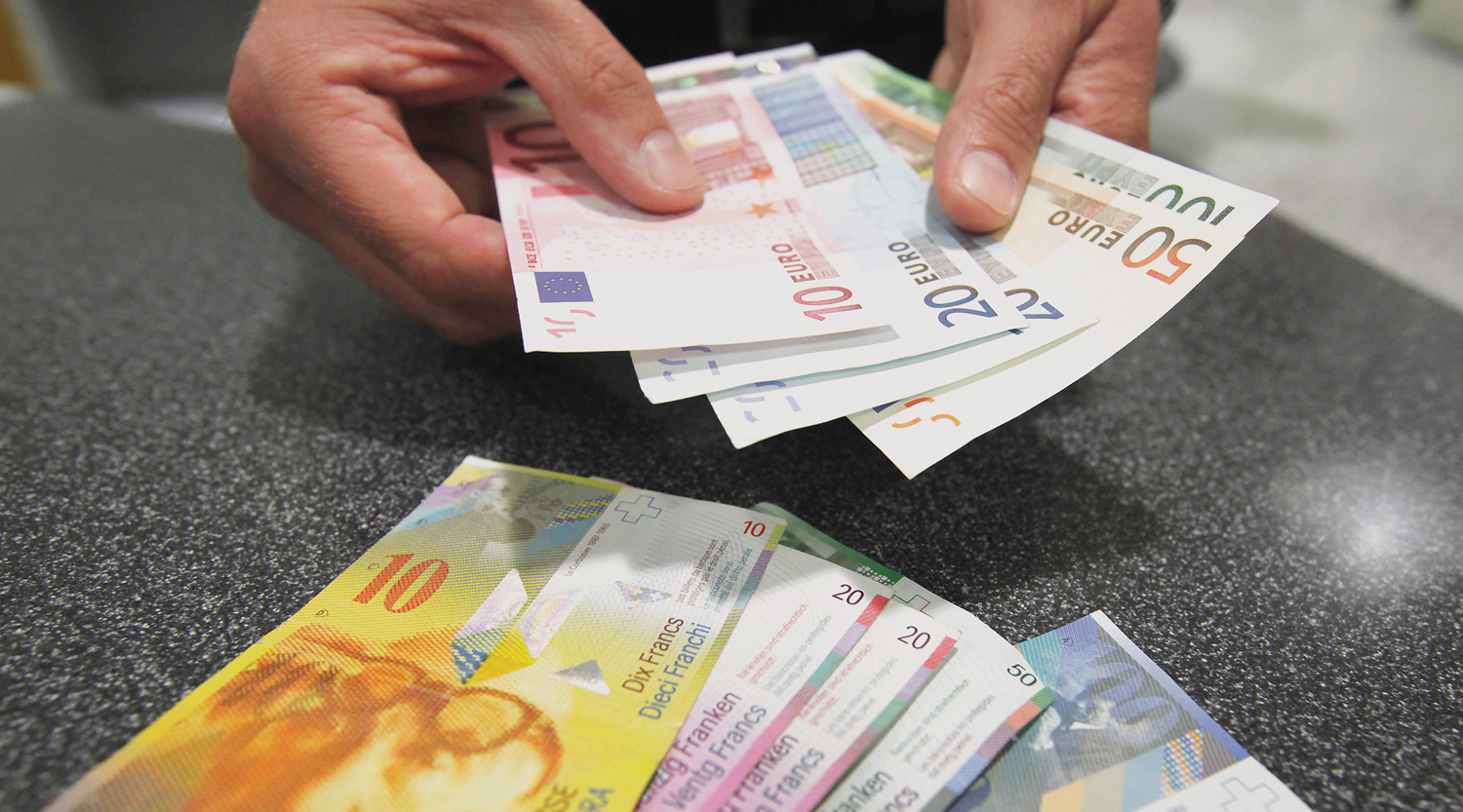

The Swiss franc, long a place to park cash during times of stress — and away from the taxman’s eyes — may be losing its cachet, not least for Russian tycoons who face growing crackdown risks, from local regulations as well as at home. The franc slid to 1.20 per euro, the level at which the Swiss National Bank in January 2015 abruptly abandoned as its exchange rate cap in a decision dubbed Frankenshock.
The currency’s latest drop has drawn particular attention because it coincides with a spike in geo-political tensions. In previous years, that would have caused the franc to surge because it was one of the assets that would hold its value, even during troubled times.
So far this year, though, it has lost 2.5 per cent against the euro. Meanwhile, gold and the yen, also considered safe, have gained nearly five per cent each.
For many, the reason is simple. The SNB has refused to signal it will follow the European Central Bank in tightening monetary policy when the latter ends its bond-buying programme later this year. SNB Chairman Thomas Jordan has stressed that ending its ultra-loose policy is not on the agenda.
As a result, bets against the Swiss franc are being rebuilt, leading to the peculiar weakening of the currency, some argue. Latest CFTC data shows a 1.4 billion net short position against the franc, nearly doubling from a month ago.
Jonathan Davies, head of currency strategy at UBS Asset Management sees fair value in the “low 1.20s”, attributing it to “divergence in monetary policy trends between the two central banks, which is favouring a weaker franc.”
Kamal Sharma, director of G10 FX strategy for Europe at Bank of America Merrill Lynch recommends shorting franc versus euro.
“Swiss franc weakness has flown under the radar. We are not surprised and see further losses ahead versus the euro and the yen,” Sharma said.
But the franc’s latest decline has also been blamed on Russian tycoons yanking cash from Switzerland as a way of avoiding tough new US sanctions that were imposed on several Russian entities and businessmen earlier this month.
Swiss banks have long been used by the world’s wealthy, including rich Russians, to avoid their home country’s taxes or simply to shelter money offshore. Some 14 per cent of total Russian cross-border outflows in 2017 were to Switzerland — almost three times as much as went to the United States, ING Bank analysts said.
But Swiss banks have been under increasing pressure to curb money laundering and stop handling the money of sanctioned individuals. Swiss financial watchdog FINMA said it did not require banks to enforce foreign sanctions, but they “had a responsibility to minimize legal and reputational risks.
Currency experts are sceptical this month’s sanctions were a direct cause of the franc’s latest decline. Commerzbank analyst Esther Reichelt said trading patterns did not “indicate any pronounced weakness specific to the franc since the introduction of the sanctions”.
A 6 per cent decline by the rouble against the franc the week after April 6 jars with the idea this was caused by repatriated Russian money. Whether money was moved first to other European banking centres in London or Luxembourg is unclear, but sanctions pressure would presumably apply there, too.
However, some link between Russian money flows and Swiss franc fluctuations this year may well exist — one that goes beyond just the recent round of sanctions.
“The repatriation of Russian flight capital is certainly a live theme, but the latest geo-political tensions are just adding fuel rather than being the root cause,” said Christopher Granville, managing director at consultancy TS Lombard.
He noted Russia had joined the Automatic Exchange of Information on Financial Accounts, an OECD initiative to crack down on tax dodging, in 2016, but its information exchange process with partner countries, including Switzerland, went live only in January 2018.
“Since Russian tax residents can no longer be sure of keeping their money safe in Switzerland, they feel they might as well repatriate and take advantage of a tax amnesty at home — then pay tax at (Russia’s) 13 per cent rate,” Granville
said. — Reuters
Tom Finn
Oman Observer is now on the WhatsApp channel. Click here



